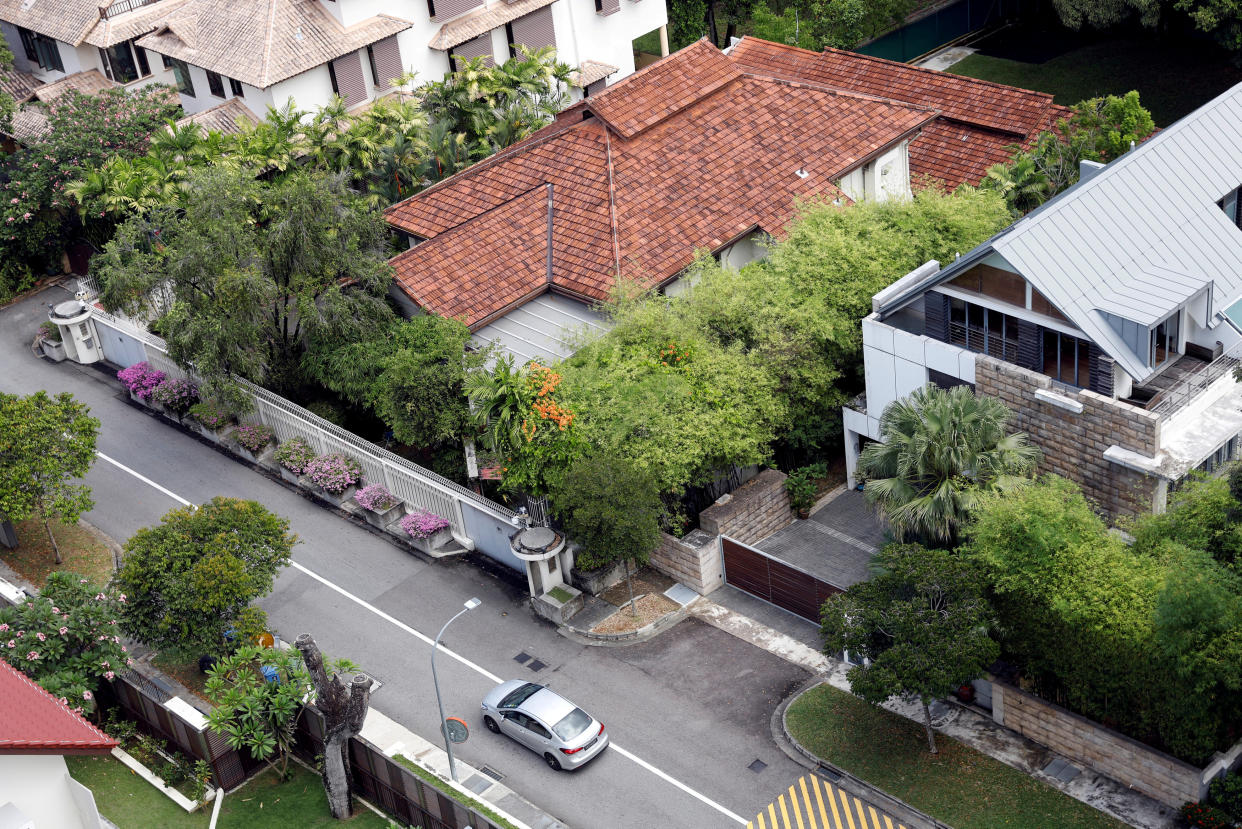Ministerial panel reveals 3 broad options for 38 Oxley Road house

The ministerial committee for the old family home of the late prime minister Lee Kuan Yew released a 21-page report on Monday (2 April), outlining three broad options for the property at 38 Oxley Road.
There is “no immediate need to decide the fate of the property” given that Lee’s daughter, Dr Lee Wei Ling, is likely to “continue residing there for the foreseeable future”, the committee said.
Chaired by Deputy Prime Minister and Coordinating Minister for National Security Teo Chee Hean, the committee also includes Minister for Culture, Community and Youth Grace Fu, Law and Home Affairs Minister K Shanmugam, and Minister for National Development Lawrence Wong.
“We did not make any recommendation because no decision is required at this point in time. Ultimately, in the fullness of time, a future Government will have the responsibility to consider the public interest aspects of the Property, taking into account Mr Lee Kuan Yew’s wishes,” said DPM Teo.
The report noted the late Lee’s preference for the house to be demolished, but that he was also “prepared to accept options than demolition”, provided that suitable arrangements were made to ensure that “it was refurbished, and kept in a habitable state” and that the family’s privacy was protected in line with his wishes.
The fate of the house was the centre of a public family spat last June, when Dr Lee and Lee Hsien Yang – younger siblings of Prime Minister Lee Hsien Loong – accused their brother of abusing his power to prevent the house from being demolished as per the late Lee’s final will.

Assessing that the house has “architectural, heritage and historical significance”, the committee added that it has “carefully studied the representations from Mr Lee Kuan Yew’s children” and “objective evidence” and “key concrete steps that Mr Lee Kuan Yew himself took in his lifetime to put his wishes into effect”.
These included the demolition clause in the late Lee’s last will, his letter to Cabinet dated 27 December 2011, as well as the renovation and redevelopment plans for 38 Oxley Road, which he submitted to the Urban Redevelopment Authority in March 2012, and obtained approval for, the committee said.
One option was to retain the property by gazetting it as a national monument or for conservation, and to include additional steps to “significantly address” the late Lee’s concerns about privacy.
The second option would be to retain the basement dining room – assessed to be the most historically significant part of the property – and tear down the rest of the house.
The room was the site of the founding of the People’s Action Party in 1954, and also where the late Lee and his team of pioneer leaders made decisions to contest elections in 1955 and 1959.
“This is one way to fulfil Mr Lee’s wishes to tear down the building, and still retain the most historically significant part of the house, although there may be a loss of context in preserving a room alone without the rest of the Property,” the committee said.
The last option would be to fully demolish the property and allow redevelopment by either the owner or the state.
The state could redevelop it into “a public park, heritage centre, research entity, or similar public institutions”, one way to allow public access to the site, it added.
DPM Teo said, “The work of this Ministerial Committee was thrust into the public spotlight last year. We therefore felt we owed it to Singaporeans to release our report, explain our work, what were our findings, and the options for the Property that could be considered by a future Government.”
“With this, we hope to close the chapter on this topic, and focus on other pressing national issues ahead of us.”
Related stories:
Lee Hsien Loong made ‘false’ claims about father’s wishes on Oxley house: Wei Ling and Hsien Yang
Lee family feud: MPs call for independent inquiry on abuse of power allegations
Deed of Gift for Lee Kuan Yew’s items handled ‘correctly and above board’: Lawrence Wong
Lee family feud is a serious matter, not a ‘Korean drama show’: Low Thia Khiang
Teo Chee Hean: Rarely need to reveal formation of Committees like one on 38 Oxley Road
Suing my siblings would ‘further besmirch my parents’ names’: PM Lee
PM Lee in Parliament: Allegations of abuse of power by my siblings are ‘entirely baseless’
I am just trying to honour my father’s final wish: Lee Hsien Yang
PM Lee’s siblings need to show more proof of allegations, say 4 in 10 Singaporeans: survey



